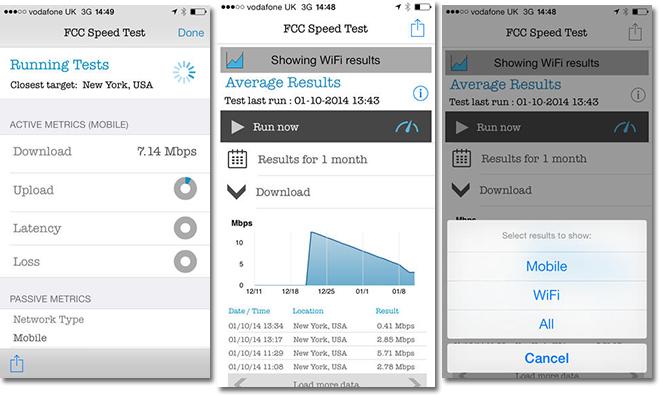The U.S. Federal Communications Commission on Thursday took a step toward improving Internet speeds in America, requiring providers to offer download speeds of at least 25 megabits per second to classify as "broadband."
The new restrictions also require 3Mbps speeds for uploads to classify as broadband Internet. Internet service providers face the more severe restrictions after the FCC determined that U.S. broadband deployment is not keeping pace with the rest of the world.
The new benchmark speeds are a large improvement from the previous requirement of 4Mbps download and 1Mbps upload to classify as broadband. The FCC said that the new speeds reflect both consumer demand and advances in technology.
The FCC's 2015 Broadband Progress Report found that 55 million Americans, or 17 percent of the population, lacks access to advanced broadband. Things are even worse in rural America, where more than half the population — Â 53 percent — doesn't have access to the newly set standard.
Finally, the FCC found that 35 percent of schools lack access to fiber optic Internet, which prevents access to the FCC benchmark of 100Mbps per 1,000 users. The FCC has a longer-term educational goal of 1Gbps per 1,000 users.
The report found that advances in broadband are not occurring broadly or quickly enough. It concludes that more work needs to be done, both in the private and public sectors, and has issued a Notice of Inquiry seeking comment on what the FCC can do to accelerate broadband deployment.
The FCC is required to report annually on whether broadband is being deployed to all Americans in a reasonable and timely fashion. The Telecommunications Act of 1996 states that if it is not, "immediate action" is required.
Of course, Internet speeds are of great interest not only to consumers, but also to content providers like Apple, who can be hamstrung when trying to provide high-definition video content, music, apps, software updates and otherwise to users who have a poor Internet connection.
To help test broadband speeds throughout the country, the FCC released a speed test app for iOS a year ago. Using the application provides the Commission with instant feedback on network health, and aggregates anonymized speed and location data to maintain a nationwide performance map.
 AppleInsider Staff
AppleInsider Staff







-m.jpg)






 Charles Martin
Charles Martin

 Malcolm Owen
Malcolm Owen
 William Gallagher
William Gallagher

 Christine McKee
Christine McKee
 Wesley Hilliard
Wesley Hilliard









85 Comments
Oh good, now my provider has an excuse to raise my rates.
[quote name="kent909" url="/t/184563/fcc-says-broadband-class-connections-must-offer-at-least-25mbps-download-speeds#post_2668514"]Oh good, now my provider has an excuse to raise my rates.[/quote] They have never had trouble creating their own reasons. This is a good thing. It would be easy to overstate how good it is, and much of that will depend on the extent to which this change is tied to regulation and policy, but it is important for this definition to keep pace with technology advancements.
The screenshots accompanying this article confound me. An iPhone running an FCC Speed Test app (FCC is an American entity) on the vodafone UK network's "closest target" is New York?
[quote name="kent909" url="/t/184563/fcc-says-broadband-class-connections-must-offer-at-least-25mbps-download-speeds#post_2668514"]Oh good, now my provider has an excuse to raise my rates.[/quote] Explain the logic there I must be missing something. If you say, you only had 15 Mb/s and the cable company was billing you as having 'broadband' before this change, then that would surely be a reason for users to demand either an increase to at least 25 Mb/s at the same price or get a price cut. I am trying to think of a scenario that fits your interpretation.
[quote name="digitalclips" url="/t/184563/fcc-says-broadband-class-connections-must-offer-at-least-25mbps-download-speeds#post_2668522"] Explain the logic there I must be missing something. If you say, you only had 15 Mb/s and the cable company was billing you as having 'broadband' before this change, then that would surely be a reason for users to demand either an increase to at least 25 Mb/s at the same price or get a price cut. I am trying to think of a scenario that fits your interpretation.[/quote] So you believe that those who do not get the new definition of broadband will not see a price increase if they ask for 25mbs. I have never been given a speed increase that I asked for that was given at no charge. If you have, congrats to you. All this will require an infrastuture update somewhere, and who do you think is going to pay for that?